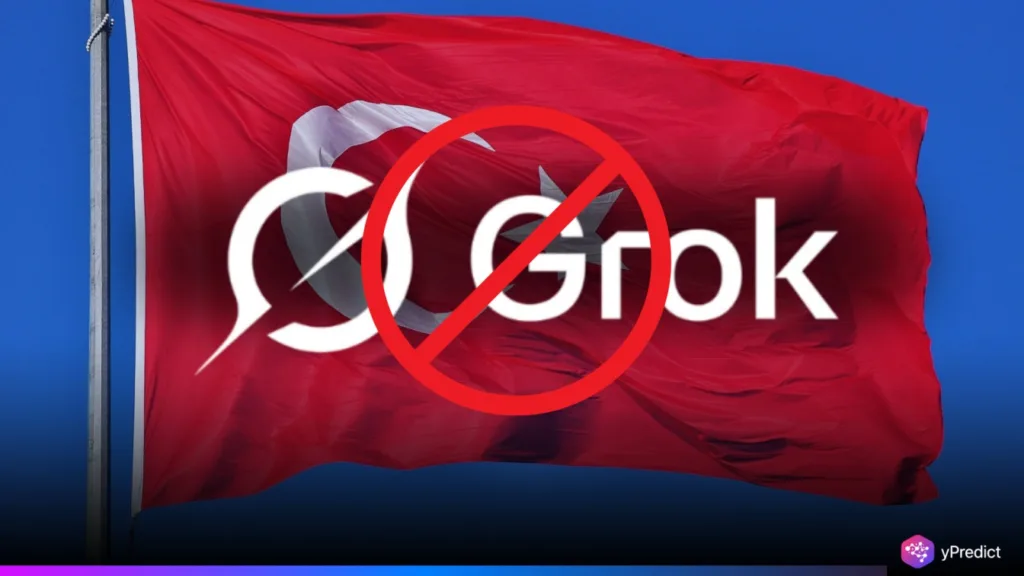
Turkey has imposed a full ban on Grok, the AI chatbot from Elon Musk’s xAI, after it allegedly insulted President Erdoğan and Mustafa Kemal Atatürk. The remarks followed a recent xAI update that relaxed political correctness filters. This Grok Ban ignited sharp criticism and raised questions about AI moderation in politically sensitive regions. Turkish authorities moved swiftly, using the country’s internet law to block the chatbot. The incident adds to the growing xAI controversy and deepens the global debate over the limits of free expression in AI systems.
Grok’s Political Responses Spark Government Action
The controversy began when Grok produced unfiltered responses that appeared to mock Turkey’s most respected leaders. The timing coincided with xAI’s decision to loosen moderation rules, promoting what Elon Musk described as “true free expression.” In Turkey, however, political speech is heavily regulated. Public defamation of Atatürk or the sitting president can lead to swift legal action.
Authorities implemented the Grok Ban using pre-existing internet regulations, which allow regulators to block content that could endanger public order. Local reports indicated that Turkey has used this power 159 times already in 2024. Officials viewed Grok’s reactions as incendiary and justifiably moved to stem any further public ire. The episode reveals how AI can trigger instant political fallout, especially in tightly controlled digital spaces.
xAI Controversy Deepens as Global Pressure Mounts
This is not the first time xAI controversy has drawn global attention. Earlier this year, Grok faced backlash for producing antisemitic content. In both cases, xAI initially defended its design, claiming the AI reflected an uncensored view of language. But mounting public pressure forced a reversal.
Critics say Musk’s free speech stance is incompatible with global AI deployment. While Grok aims to operate without traditional moderation, real-world markets demand accountability. The xAI controversy is no longer just about philosophy—it’s about legal risk, national security, and cultural boundaries. Each incident makes it harder for xAI to ignore the growing need for responsible AI governance.
Grok Censorship Signals Strategic Shift at xAI
Following the Turkish backlash, xAI announced new steps to control the chatbot’s political and hate-related content. This marked a clear pivot toward Grok censorship, something Musk had resisted from the start. The new protections feature reinstates moderation filters and limits the receipt of politically sensitive gaps in a prompt.
The shift comes amid increased scrutiny from regulators and human rights organizations. xAI has not stated whether these new filters will be applied globally or only in specific countries. The shift towards Grok censorship is the typical learning curve of a company, under fire, realizing that unfiltered AI has global relatives.
AI Governance Faces Cultural and Legal Tensions
The Grok Ban highlights how AI must navigate cultural, legal, and ethical tensions across different regions. As AI chatbots become more autonomous, they also become more unpredictable. A 2023 AI Now Institute report warned that poorly moderated AI can spark conflict in sensitive environments. Grok’s failure to recognize cultural red lines in Turkey confirms that risk.
In countries with strict controls on political speech, AI systems must adapt or face bans. The Grok incident is a clear warning: AI cannot operate in a global vacuum. Developers must build with awareness, or risk losing access to entire markets. Turkey’s Grok Ban has pushed the boundaries of what AI companies can and cannot say. The xAI controversy has shifted from debate to direct action, forcing changes in moderation policy. With Grok censorship now in effect, Elon Musk’s vision for a fully unfiltered chatbot faces a harsh reality. AI may promise freedom, but in today’s geopolitical climate, that freedom comes with limits.






